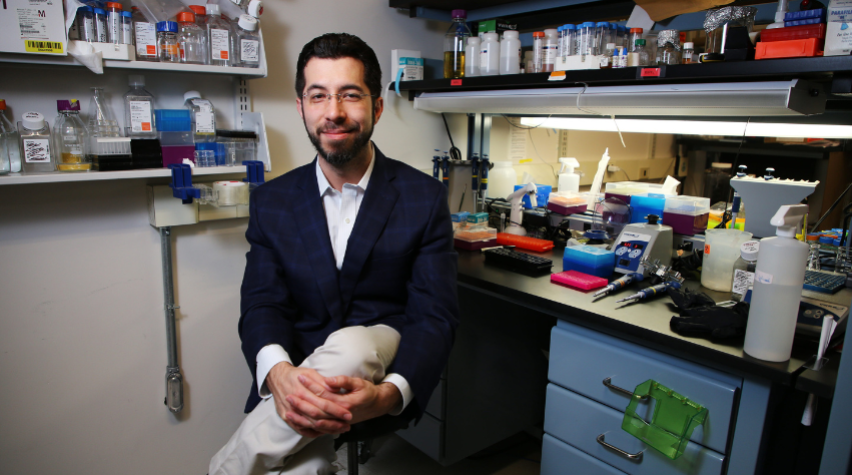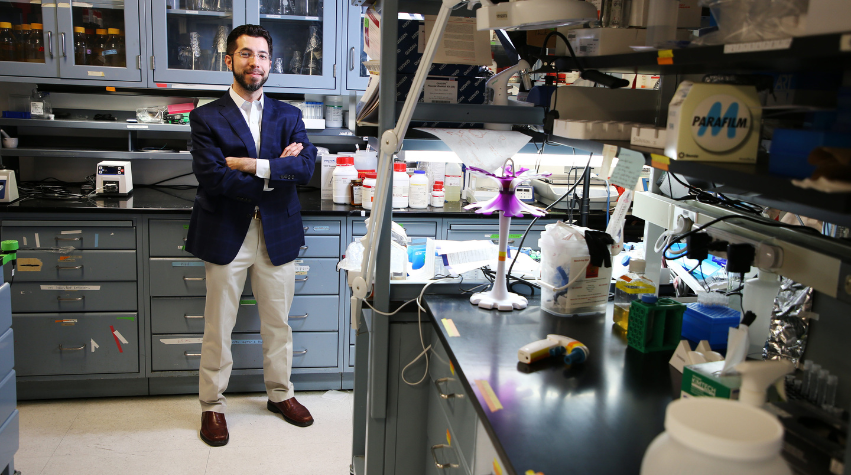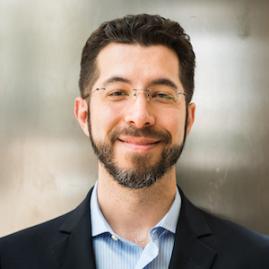
The 3rd Optogenetic Technologies and Applications Conference, organized by the Society for Biological Engineering (SBE), will showcase advances in optogenetics and bring together different branches of the optogenetic community. The conference will include approaches in neuronal and non-neuronal optogenetics as well as in material science and unicellular organisms.
We recently spoke with Ed Boyden, Ph.D., the Y. Eva Tan Professor in Neurotechnology at Massachusetts Institute of Technology (MIT), an investigator of the Howard Hughes Medical Institute and the MIT McGovern Institute, and professor of Brain and Cognitive Sciences, Media Arts and Sciences, and Biological Engineering at MIT, and a keynote speaker at this year's conference. Dr. Boyden shares with us the importance of optogenetics, breakthroughs in the field, and what he predicts for the future of optogenetics.
How would you describe optogenetics to a layperson, and why is this area so important?
Brain cells compute using – amongst other things – electricity. In optogenetics, we install molecules in brain cells that convert light to electricity. These molecules come from the natural world and are found in microorganisms such as single-celled green algae. The organisms use these molecules to sense light or to capture solar energy in chemical form.
We deliver genes encoding for these molecules, into brain cells, using gene therapy vectors. Then, by shining light on the brain cell, we can turn it electrically on or off, depending on which molecule was expressed. By activating a set of brain cells we can see what kinds of behaviors, pathologies, or therapeutic effects they can cause.
By silencing a set of brain cells we can see what behaviors, pathologies, or therapeutic effects they are necessary for. Thousands of neuroscientists are using optogenetics (opto meaning light, and genetics because these are genetically encoded reagents) to study the brain.

In your opinion, what has been the biggest breakthrough in this field, and what are some promising applications?
There are so many amazing results, it’s hard to know where to begin! As an example that comes to mind, one of my collaborators at MIT, Li-Huei Tsai, has used optogenetics to discover that a certain brainwave, a 40 Hz oscillation, could have the potential to clean up the damage of Alzheimer’s disease. My group helped her with this discovery, and I found it fascinating that a brain oscillation could potentially help address one of the most intractable diseases of our time.
A European team has taken one of our molecules and used a gene therapy vector to deliver the gene encoding for the molecule to the eye of a blind patient with retinitis pigmentosa. They found that the patient had a partial restoration of functional vision.
Optogenetics allows for very precise control of neurons and can open up many new scientific as well as therapeutic frontiers.
Above: Ed Boyden's Ted Talk titled "A light switch for neurons."
What are you hoping the audience takes away from this conference?
I’d like for the audience to understand the power of optogenetics, as well as of synergistic tools like expansion microscopy developed by our group. My goal is to convey how easy it is to use these tools, and that we are willing to help them get started.
Finally, I would like the more chemistry-oriented members of the audience to see that they too can develop new tools, with lots of impact on biology, by applying their skills to these deep problems.
Where do you see the this field headed over the next five years?
I think that complementary tools, like expansion microscopy, are going to enable the mapping of biological systems with unprecedented accuracy, at unprecedented scale. These tools will highlight new targets in biological systems for perturbation, which could lead to new insights as well as new therapeutic strategies.
The 3rd Optogenetic Technologies and Applications Conference will be held in Heidelberg, Germany, December 1–3, 2022. Learn more and register today.

Edward Boyden
Ed Boyden leads the Synthetic Neurobiology Group, which develops tools for analyzing and repairing complex biological systems such as the brain, and applies them systematically to reveal ground truth principles of biological function as well as to repair these systems. Read more


